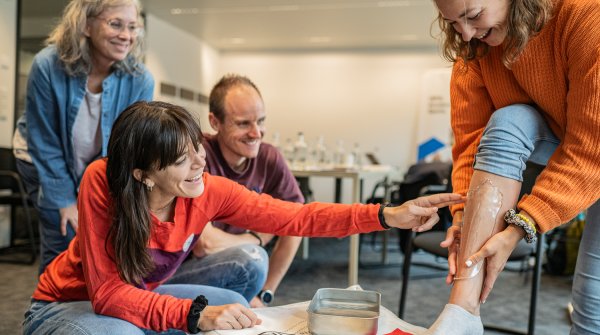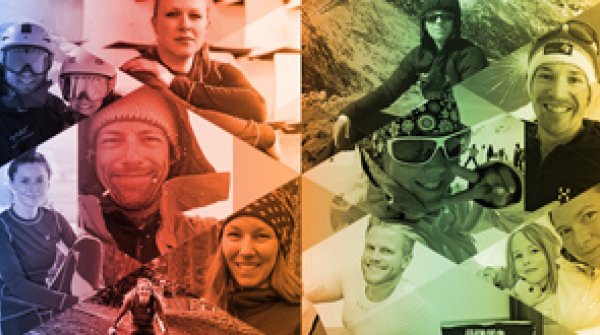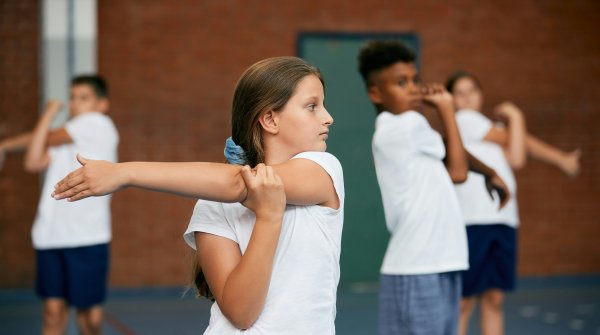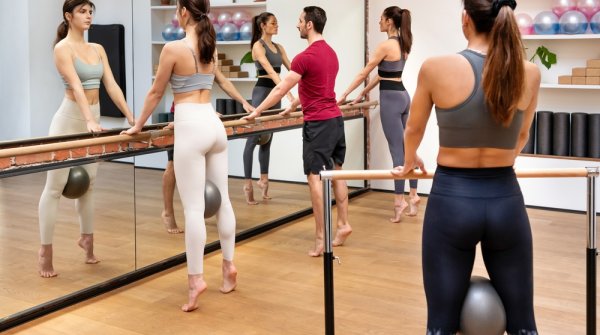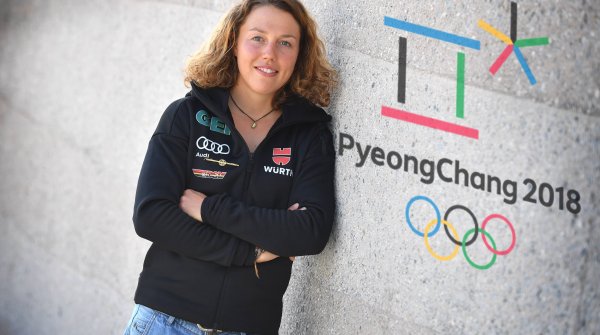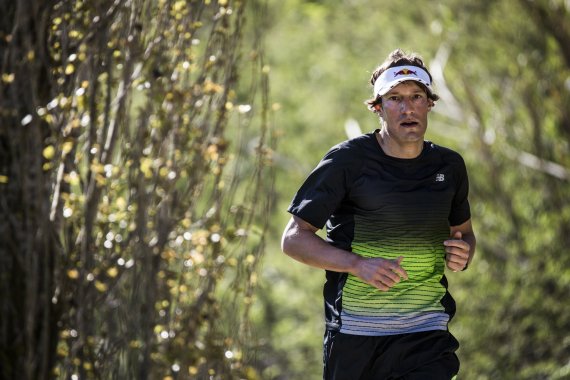
Sebastian Kienle is a professional athlete with a passion. When he talks about sports, he does so with an enthusiasm that is infectious.
In an interview with ISPO.com, the triathlon star talks about the right training, sports in high heat, and the perfect tools.
ISPO.com: Sebastian, getting back into sports after an injury is an issue for many athletes. Do you have any tips from a sports pro on how to get off to a good start that is as easy as possible?
Sebastian Kienle: It's important to look for areas during the injury break where you can still train - usually it's not the whole body that's injured, but a part of it. There is also an opportunity to work through the injury in areas that would otherwise be neglected - be it flexibility or general athleticism.
When you get back into the main sport, there is the opportunity to use assistive technology. For example, the treadmill helped me a lot with my Achilles tendon injury, or aqua jogging, or very simply: LightSpeed - a support system that you can attach to the treadmill to reduce impact.
In addition, you should also test other sports and keep the load in the main sport low for the time being. When returning to running, it is always important to train in a very controlled environment and not to aim too high.
How important is a good trainer and how can I recognize a good trainer? How much does the training group matter to you?
A good trainer doesn't follow dogma, always questions himself and constantly educates himself; he sees each athlete individually. You don't need a coach for a copy & paste online training plan.
A training group is extremely good and can be very motivating. There are fixed dates with the group, which may be less easy to cancel. At the same time, such a group, especially if it consists of athletes who pursue the same or similar goals, can of course also mean competition - which can cause stress. So it's definitely a double-edged sword.
The will is there - but no time. Is there a pro trick for easily incorporating training into your day? What about the commute to work, for example, which many employees can tell you a thing or two about?
Routines are very important. Clear communication with family and everyone involved about when it's time to exercise helps avoid friction and is effective.
I notice it in myself: On casual days, when I live into the day, it's very difficult for me to implement the little bit of training at all, because the tight schedule is missing.
Then there are always ways to fill small gaps in time with exercise: even in the office, a short fitness program can be completed - sometimes it's as little as 4x15 push-ups that can give you that pleasant feeling of slight muscle soreness.
Even the way to work is perfect to use it for sports right away, that's an absolute sports opportunity.
To what extent do you use tracking tools for running and bike training?
I use a few training tools. Strava is a great thing, especially to stay motivated. But to my races I can't expose myself additionally to social media competitions, also because this data is a competitive advantage in the professional field.
On Trainingspeaks most professionals upload their data. Me too - for this purpose my Polar watch collects data and posts it to Training Peaks - my coach additionally uses a software tool to analyse cycling sessions. In addition, I continue to track data in sections: sleep data or 24-hour heart rate tracking can allow conclusions to be drawn about whether one has relaxed too little before a race. Especially if the race didn't go as planned, this data is valuable in hindsight.
Training goals. How do you set goals without overtaxing yourself? What should you keep in mind when defining goals?
Goals are essential, without them, it is difficult to follow a good plan and stay motivated. I distinguish between a kind of "mission statement", i.e. a very long-term goal that may never be finally achieved, such as always staying healthy and fit. And more short-term, semi-annual to annual goals: these may well be competitions or times.
The important thing here is to set a goal that you can control yourself, independent of your competitors. Placements as a goal are difficult because they do not exclusively reflect one's own performance. However, times are also a difficult topic in triathlon, because they also depend on the conditions and not only primarily on the performance. It makes more sense to set a time window as a personal goal.
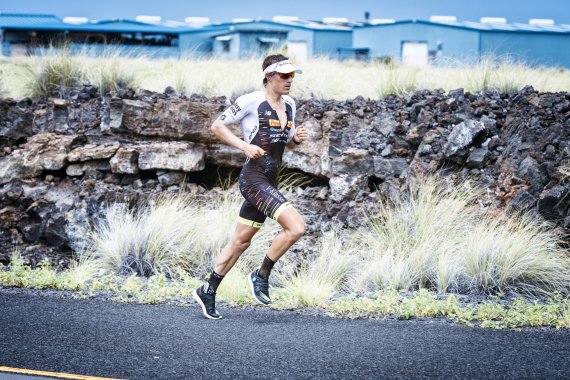
Training outdoors also means dealing with a wide range of weather conditions. The hot temperatures in summer are not without danger. What should you pay attention to when training in summer?
Above all, it is important to adapt slowly. Especially in the case of sudden changes in the weather, you should avoid the extremes, postpone the sport to the morning and do not start the long run in the midday heat. Later on, it is possible to expose the body to an extra stimulus, especially if a competition is planned in the same conditions. Especially in preparation for hot races, it makes sense to lie down in the warm bathtub or go to the sauna directly after a relaxed training session.
If you are deliberately looking for the extreme, it is helpful to run smaller laps, with the option to break off, deposit a drink and take a companion on the bike. Drinking is elementary, logically.
What to look for when choosing sports equipment, what helps during training?
Even as a professional, I'm still motivated by new gadgets and tools. Some of them become a permanent fixture, others disappear. It's important not to get bogged down, otherwise you'll only be training with extra equipment, which also costs time. Especially in swimming, people come with bags of equipment, but in the end it's all about what I have to be able to do in the race. Sometimes less is more.
... for the bike: Of course, the bike and the corresponding equipment are important first (laughs). But the most important tool is a power meter, a performance measurement device, because it allows you to control your training precisely. But that requires expertise, i.e. a coach and performance diagnostics. Just collecting data makes little sense.
... for running: Very simple: a good shoe. Gait and treadmill analysis as well as good advice help to find the right shoe. The only equipment I use regularly is a normal skipping rope.
... For swimming: For swimming, the snorkel is one of the most important tools. With it you can switch off the not so easy technique breathing. This allows you to concentrate on the arm stroke and the leg stroke. Many pieces of equipment for swimming are aimed at eliminating one technical area.
As a world-class triathlete, you naturally act as a role model. Is there anything you would like to give every athlete, whether recreational, amateur or professional, to take with them on their training journey?
In the end, it's just sport (laughs) - even if it sometimes feels like my whole life to me, and sometimes it is. The important thing is not to lose the fun. One aspect that brings me fun: Beginners and the fire in their eyes. If I can contribute something to encourage others to do sports, much is gained.
So: if you manage to get one or two people excited about sports, you've grabbed something big. That gives a cascade effect, more people come to sports - it doesn't have to be a triathlon. People who do sports regularly are less stressed, so you have less stressed people around you and that ultimately makes us all feel better (laughs).
- ISPO awards
- Mountain sports
- Bike
- Design
- Retail
- Fitness
- Health
- ISPO Job Market
- ISPO Munich
- ISPO Shanghai
- Running
- Brands
- Sustainability
- Olympia
- OutDoor
- Promotion
- Sports Business
- ISPO Textrends
- Triathlon
- Water sports
- Winter sports
- eSports
- SportsTech
- OutDoor by ISPO
- Heroes
- Transformation
- Sport Fashion
- Urban Culture
- Challenges of a CEO
- Trade fairs
- Sports
- Find the Balance
- Product reviews
- Newsletter Exclusive Area
- Magazine
